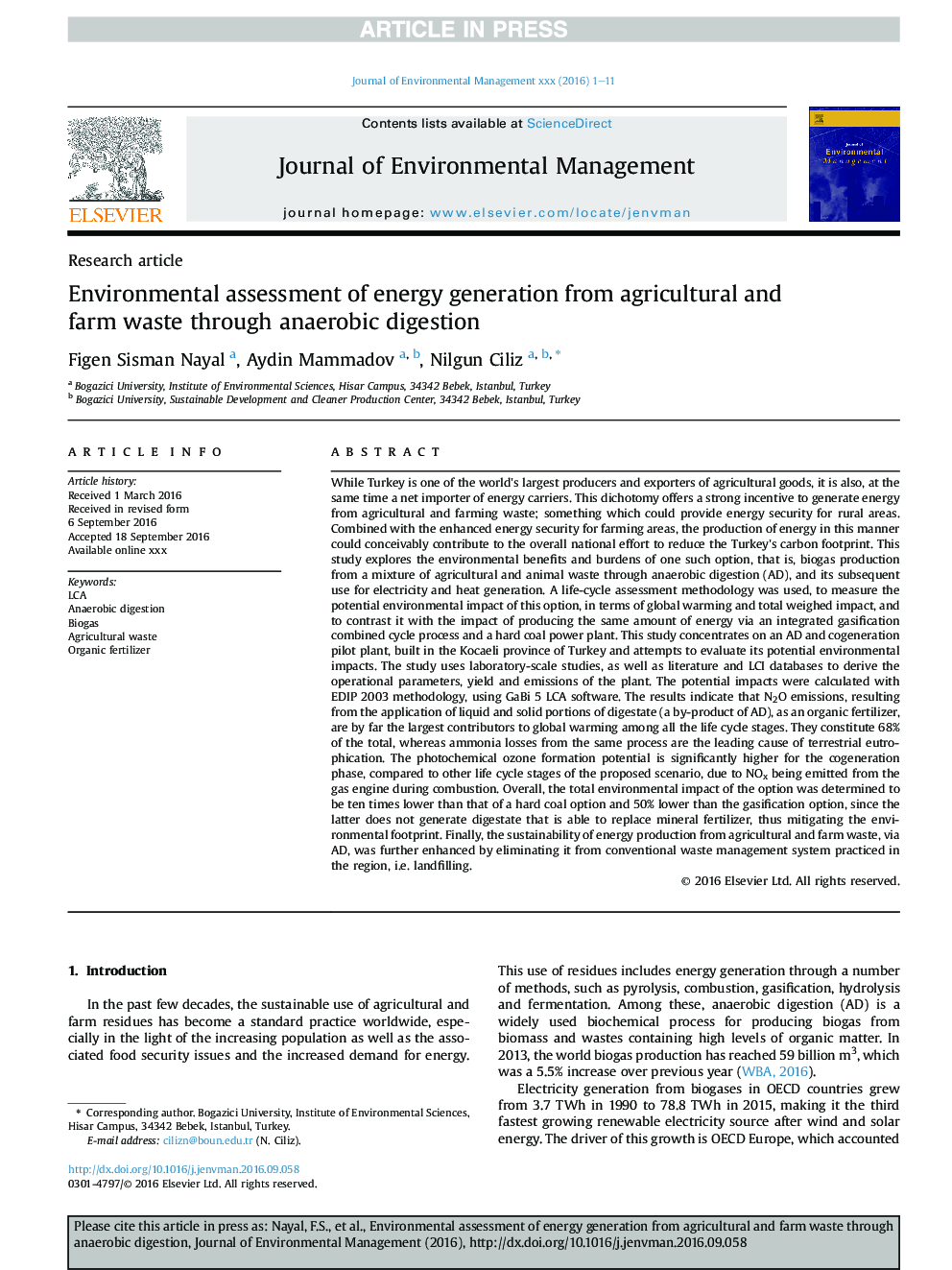| کد مقاله | کد نشریه | سال انتشار | مقاله انگلیسی | نسخه تمام متن |
|---|---|---|---|---|
| 5117104 | 1378115 | 2016 | 11 صفحه PDF | دانلود رایگان |
عنوان انگلیسی مقاله ISI
Environmental assessment of energy generation from agricultural and farm waste through anaerobic digestion
ترجمه فارسی عنوان
ارزیابی محیط زیست از تولید انرژی از زباله های کشاورزی و مزرعه توسط هضم بی هوازی
دانلود مقاله + سفارش ترجمه
دانلود مقاله ISI انگلیسی
رایگان برای ایرانیان
کلمات کلیدی
موضوعات مرتبط
مهندسی و علوم پایه
مهندسی انرژی
انرژی های تجدید پذیر، توسعه پایدار و محیط زیست
چکیده انگلیسی
While Turkey is one of the world's largest producers and exporters of agricultural goods, it is also, at the same time a net importer of energy carriers. This dichotomy offers a strong incentive to generate energy from agricultural and farming waste; something which could provide energy security for rural areas. Combined with the enhanced energy security for farming areas, the production of energy in this manner could conceivably contribute to the overall national effort to reduce the Turkey's carbon footprint. This study explores the environmental benefits and burdens of one such option, that is, biogas production from a mixture of agricultural and animal waste through anaerobic digestion (AD), and its subsequent use for electricity and heat generation. A life-cycle assessment methodology was used, to measure the potential environmental impact of this option, in terms of global warming and total weighed impact, and to contrast it with the impact of producing the same amount of energy via an integrated gasification combined cycle process and a hard coal power plant. This study concentrates on an AD and cogeneration pilot plant, built in the Kocaeli province of Turkey and attempts to evaluate its potential environmental impacts. The study uses laboratory-scale studies, as well as literature and LCI databases to derive the operational parameters, yield and emissions of the plant. The potential impacts were calculated with EDIP 2003 methodology, using GaBi 5 LCA software. The results indicate that N2O emissions, resulting from the application of liquid and solid portions of digestate (a by-product of AD), as an organic fertilizer, are by far the largest contributors to global warming among all the life cycle stages. They constitute 68% of the total, whereas ammonia losses from the same process are the leading cause of terrestrial eutrophication. The photochemical ozone formation potential is significantly higher for the cogeneration phase, compared to other life cycle stages of the proposed scenario, due to NOx being emitted from the gas engine during combustion. Overall, the total environmental impact of the option was determined to be ten times lower than that of a hard coal option and 50% lower than the gasification option, since the latter does not generate digestate that is able to replace mineral fertilizer, thus mitigating the environmental footprint. Finally, the sustainability of energy production from agricultural and farm waste, via AD, was further enhanced by eliminating it from conventional waste management system practiced in the region, i.e. landfilling.
ناشر
Database: Elsevier - ScienceDirect (ساینس دایرکت)
Journal: Journal of Environmental Management - Volume 184, Part 2, 15 December 2016, Pages 389-399
Journal: Journal of Environmental Management - Volume 184, Part 2, 15 December 2016, Pages 389-399
نویسندگان
Figen Sisman Nayal, Aydin Mammadov, Nilgun Ciliz,
